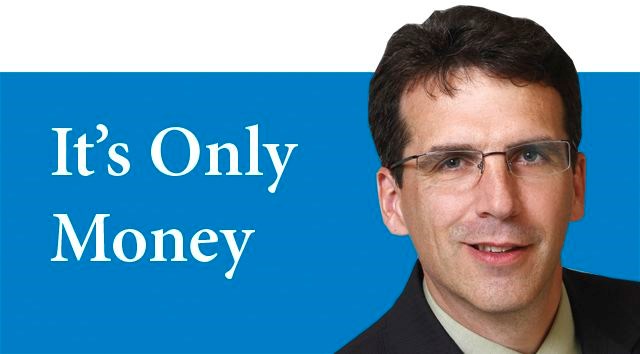The Lynn Valley Road Hockey League consisted of the East 27th St. Bruisers (my team), the 18th Avenue A's (a bunch of elite rep A players), the Condo Kids (who couldn't afford their own net) and the Ross Road Runners (who once had a player named Bryan Adams - yes, that Bryan Adams).
It was a huge moment when we defeated the elite 18th Avenue team in the second round. They said we cheated, but in truth we were hungrier than them and less whiny. We had already beat Ross Road, so we found ourselves up against the Condo team of ragtag losers for the 1969 Manley Cup.
Their team could scarcely fill their roster. They had moderately-talented twins, along with their toothless little sister, whose plastic Super Blade constantly flew off her stick. There was a speed bump in the playing roadway and a kid who served as our play-by-play specialist and last-resort referee. He had a long trench coat, floppy dress shoes and a broken radio, which he held up to his ear while talking his way through the action in radio-voice. It was awkwardly flattering.
Finally the game got going and we quickly realized how the shabby crew got to the final. They had a new kid.
His own team didn't like him. His stick was too long, his bell-bottoms too short, his hair too greasy and his snap shot oh so deadly. He played with a dorky smile on his face; it was like a game to him... weird. He had a broken arm, protected by an ugly white plaster cast with dog hair and a piece of gum stuck to one end. Occasionally he put the gum back in his mouth for a few more chews, which sort of weakened my resolve to live.
It was a best-of-three and we lost in the third game in overtime - our turn to whine. More importantly, by the end I had made a new friend who would prove to last a lifetime. We fought occasionally, but we had too much in common not to bond. Children of divorced single moms, hockey geeks, poor and often in detention after school.
U.S. tax battles
Speaking of battles, let's look at the tax traps for U.S. citizens living in Canada.
There are over 7.6 million U.S. citizens living abroad. Based on the 2011 Canadian Census, over three million are U.S. citizens living in Canada. Just like Canadians, they will own various types of assets, some of which will grow, produce income and possibly receive preferential tax treatment. The difference for Americans in Canada is that they need to abide by both Canadian and U.S. tax rules, making their tax situation much more complicated.
While the system of foreign tax credits and rules under the Canada U.S. tax treaty are often helpful, there are numerous tax traps that Americans in Canada can easily fall into, sometimes with very serious consequences.
RRSPs and RRIFs work for Americans in Canada. The tax deferral that Canadians enjoy until funds are withdrawn equally apply under U.S. income tax rules and while there is no deduction for U.S. income tax purposes upon contributions to RRSP plans (except for contributions to certain group RRSP plans), these contributions can be withdrawn on a U.S. tax free basis.
TFSAs do not work for Americans in Canada. The U.S. will tax the annual income.
Also RESPs funded by U.S. subscribers don't work. They are taxed annually in the U.S. on the income earned. Worse, since TFSAs and RESPs are trusts, Americans in Canada who are contributors or beneficiaries may have to file complex U.S. trust information forms annually.
Americans in Canada that participate in a number of non-(U.S.)-qualified retirement income and deferred compensation plans from Canadian employers must consider whether these plans are subject to punitive U.S. tax rules. Failure might result in immediate U.S. taxation of the deferred compensation, an interest charge, and a 20 per cent penalty.
Americans in Canada may have established Roth IRAs, IRAs, and 401(k) plans before coming here. Roth IRAs are similar to TFSAs as there are no deductions for contributions to the plan and the growth may be withdrawn from the plan tax-free. Canada will provide the same tax treatment if no contributions are made while here, with proper documentation. No further contributions may be made to the Roth IRA while they are resident in Canada.
U.S. 401(k)'s and IRAs can in many cases be transferred to Canadian RRSPs on a tax-neutral basis. Although the withdrawal from these accounts are subject to U.S. taxation and potentially an additional 10 per cent early withdrawal tax, it may be possible to obtain full foreign tax credit relief in Canada, resulting in tax neutrality. It is important to do an analysis to ensure tax neutrality since the strategy does not work for everyone.
The U.S. views American-held trusts and corporations in Canada as foreign legal structures, and notwithstanding that these structures are taxable in Canada, the U.S. taxes these structures quite differently, often resulting in double taxation.
Mark Ryan is an investment advisor with RBC Dominion Securities Inc. (member - Canadian Investor Protection Fund), and these are Ryan's views, and not those of RBC Dominion Securities. This article is for information purposes only. Please consult with a professional advisor before taking any action based on information in this article. See Ryan's website at: http://dir.rbcinvestments.com/mark.ryan.



